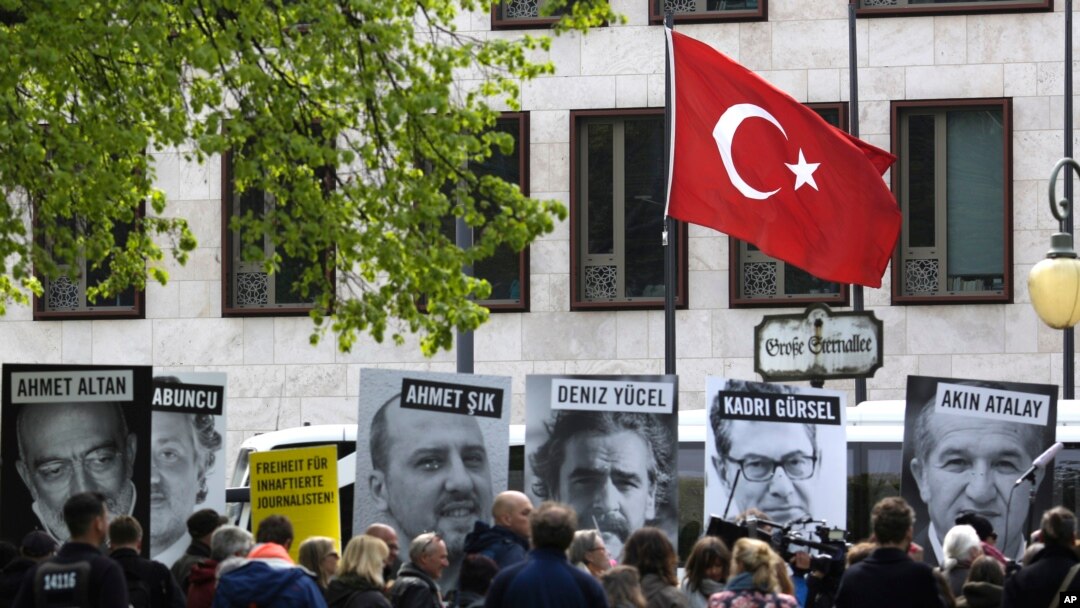Political imprisonments of human rights defenders and journalists are a symptom of broader democratic backsliding, according to a report released Thursday.
The Freedom House report focuses on Nicaragua, Tanzania, Thailand, Tunisia, Turkey and Venezuela, saying all six countries experienced considerable democratic backsliding over the past two decades.
“Around the world, there are a lot of anti-democratic leaders in increasingly authoritarian settings who are using a really expansive toolkit of oppressive tactics in order to silence critics and opponents,” Amy Slipowitz, the report’s co-author, told VOA.
One of the primary tools is political imprisonment, which is “an attempt to remove the most vocal critics from society,” she said.
“We wanted to look at how political imprisonment interacts with democratic erosion,” said Slipowitz, who is based in Washington.
“It’s not that a country becomes a hardened authoritarian regime and then they start jailing their opponents or critics. Rather, they coincide with each other, so the use of political imprisonment is reinforcing wider democratic decline,” she continued.
The trends outlined in this report underscore a broader threat: Global freedoms have regressed for 17 years in a row, Freedom House said in 2023.
Political jailings often correspond with triggering events, like coups, elections and protests, according to the report.
For instance, after the Thai military coup in 2014, hundreds of journalists, politicians, academics and activists were summoned for so-called “attitude adjustment.” Waves of arrests also preceded Tanzania’s 2020 elections and Nicaragua’s 2021 elections.
Venezuela’s United Nations mission in Geneva did not reply to VOA’s email requesting comment, and neither did the Washington embassies of the other five countries highlighted in the report.
Besides political jailings, the report said that governments around the world have increasingly turned to other tactics to retaliate against critics by making it difficult for them to lead normal lives in a process known as civil death.
Four primary tactics of civil death highlighted in the report include control over an individual’s travel; physically monitoring an individual; blacklisting individuals from things like employment or schooling; and controlling or seizing an individual’s assets.
These sorts of tactics create an invisible prison and lead to “major psychological pressure for both the person who’s targeted but also their family and those close to them,” Slipowitz said.
In one particularly egregious example from 2016, more than 1,000 academics in Turkey lost their jobs after signing an open letter calling for peace with the Kurdistan Workers’ Party, a U.S.-designated terrorist organization, Slipowitz said.
Turkey in 2023 also ranked among the world’s worst jailers of journalists, with 13 reporters behind bars, according to the Committee to Protect Journalists.
SEE ALSO: Israel Ranks Among World’s Worst Jailers of Journalists, Report FindsIn a more recent example of civil death, the Nicaraguan government in February 2023 stripped more than 300 Nicaraguans of their nationality and seized their assets.
“The systemic muzzling of critics to maintain a hold on power is no less than a warning sign that a political system is deeply sick,” said Freedom House President Michael Abramowitz in a statement. “But history has shown that individuals and the political systems themselves are not beyond saving.”
The report encouraged democratic governments around the world to prioritize securing the release of political prisoners, including by incorporating more political prisoner advocacy into the primary responsibilities of embassy staff.
Freedom House also recommended that governments provide financial resources to political prisoners, including help with legal fees.


